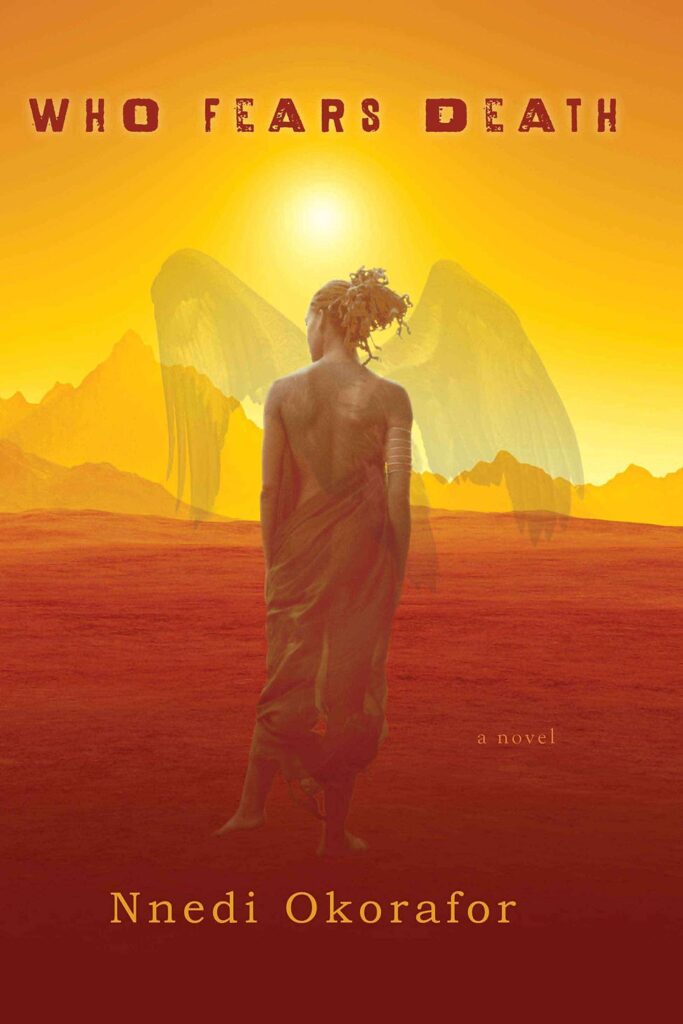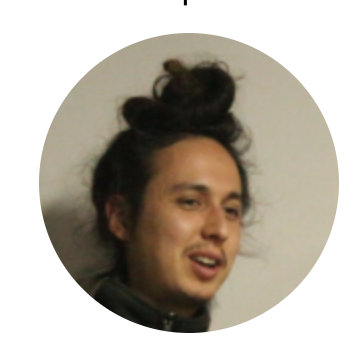Who Fears Death by Nnedi Okarofor
“Dear friends, are you afraid of death?”
– Patrice Lumumba, first and only elected Prime Minister of the Republic of Congo
In this debut novel for adults by Nnedi Okarofar, we delve into the post-apocalyptic futuristic world of Onyesonwu whose name means ‘who fears death’. Onyesonwu is an Ewu child, which means she is a child of rape from a Nuru man and an Okeke woman. The Nuru, a lighter skinned group, oppress and enslave the dark skinned Okeke people and in the time of the protagonists conception carry out systematic, dehumanizing rape crimes in an attempt at an ethnic genocide. This aspect of the book is sadly inspired by true happenings of militarized rape in South Sudan in the early 2000’s according to Okarofar.
This linkage of histories of Africa – from Sudan to Rwanda and Congo – add a layer of significance for the reader of this fantasy novel. However, though the novel refers to and alludes to many unforgettable moments in African history through having a protagonist who is moving across regions of Africa, there is no direct link to Africa as we know it today. This is because the characters in the book themselves do not know much about their history and the only remnants are computers, seen as relics of the past, and a highly biased lore book simply referred to as the ‘Great Book’. There are no borders as we know them today either, and the cities spoken off in the book are strange in both location and structure. Hence, Okarofar brings us close to this world through a shared history but holds on to a sense of mystery in the vagueness of the location of her fantasy world.
Despite the book being shrouded in mystery in relation to the present, it is still unsettlingly familiar in the violence that it depicts. I initially read this book for a course I was taking called the cultures of everyday violence. Okarofar does not shy away from violence in the book – from rape, to beatings to female genital mutilation – it is heavy and challenging in its brutal scenes that are often told in a disinterested spirit making them even more jarring. This is not a book for a fainthearted reader. However, the violence does something more for the book, it brings in the needed action into the novel that is ultimately about a heroine fighting the enemy of her people.
Undoubtedly an influence for Okarofar was Amos Tutuola’s, and his novel The Palm Wine Drinkard. The protagonist, Onyesonwu, realizes at quite a young age that she has some magical power, one of these being that she can turn into a vulture and other animals. Onyesonwu is a shapeshifter similar to Tutuola’s protagonist and in this way the divide between human and nature, in both novels is blurred and challenged. This is one of my personal favorite aspects about the book as the storytelling follows in many African folklore traditions in which animals are personified and there is not much distance between humans and other beings.
In one way this book is futuristic as it plays out post the apocalypse of our world as we know it, on the other hand it is deeply rooted in the past, drawing on African histories and storytelling practices. Through the oppression of the Nuru by the Okeke, Okarofor brings forth the problems of colourism that many societies, including Hong Kong, are facing today. This makes for a powerful read that pulls the reader between the fantasy world and our own realities.




